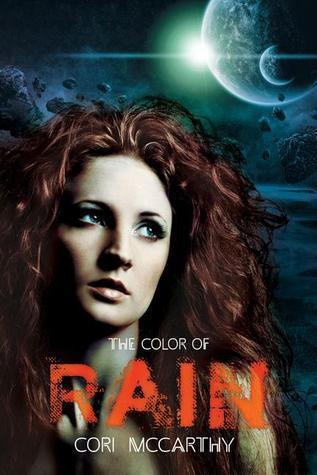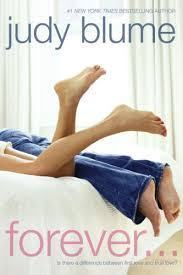Banned Books Month: Guest Post from Amy Rose Capetta: This Is Why We Can’t Have Nice Things — On the Banning of Sex-Positive YA Novels
As an author whose debut novel comes out in October, I’ve never had a book challenged or banned, for obvious reasons. But when I think about the books that I’ve read and loved that have been widely challenged, and the places where they intersect with stories I’ve written and hope to write, I see a trend that makes my nerves curl up at the edges.

Running Press Kids, May 2013.
The number one reason listed, by the American Library Association, for books being challenged in the last twenty years is this: “Sexually explicit.” This means that any book containing a sex scene is likely to come under some amount of scrutiny, if not direct fire.
This holds double-true in YA, where the age of the audience plays a factor in how often books are challenged or banned. The “sex sells” maxim found elsewhere in entertainment doesn’t apply here: the inclusion of an actual sex scene will almost invariably keep a YA novel out of certain libraries and bookstores, and therefore the hands of certain readers.
Stories where the plot centers around negative instances of sex can range from trauma (Laurie Halse Anderson’s SPEAK), to abuse (Margo Lanagan’s TENDER MORSELS), to sex trafficking (Cori McCarthy’s THE COLOR OF RAIN). These books risk being banned, but there is also a large and wonderful contingent of people who fight to remind people that the issues put forth here are important, that they need to be reflected and dealt with in fiction.
But what happens when books portray teenage sexuality in a positive light?
When a book includes a positive sexual experience, sometimes it is central to the novel—as in Judy Blume’s much-banned, very-before-its-time FOREVER. But often the sexual relationship is one aspect of the novel, and therefore seen as something that can be “safely left out.”
But I can’t help but wonder: if we ban stories that show teenage sexuality, especially that of girls, in a positive light, aren’t we adding one more stick to the ever-growing bonfire of reasons for them to see that sexuality as something they will either use or be used for, rather than something to be understood?

Simon Pulse, Reissue Edition, April 2007.
I don’t write books with a message, and I don’t enjoy reading that sort of book, either, so it might seem counterintuitive to tackle this subject. But a large part of why books are so important is because they treat the parts of a character’s life, including sex, as experience rather than agenda. No matter how positive, the relationships in most YA books aren’t perfect. They have complexities, and yes, consequence.
YA novels also give context in a world where the sexuality of teenage girls (and to a lesser but still notable extent, boys) is used as a provocation or a selling point. They offer a sense of worth in a society that is largely defined by the experiences and desires of adult men. As a teenage girl, I read an absurd amount about the sex lives of middle-aged men. That’s who wrote the classics. I was also treated to their point of view in a disproportionate amount of film, television, and other art forms. But as a teenager today, I would have had more than a dog-eared handful of proto-YA books to balance that. I’ve seen readers eagerly latch on to the relationships in YA novels, and I think part of that excitement comes from the reflection of a real variety of sexual expression.
As a teenage girl, I was drawn to books like Judy Blume’s. I didn’t confuse being ready to read about sex with being ready to have it. I needed that safe space where I could follow what happened to characters I cared about, and figure things out for myself.
As a writer, when I come to a sex scene, I weigh every choice, down to the word. The one thing I don’t weigh is whether or not to include it. I won’t be the person who tells teenage girls that sex is something that happens to them—that their feelings about it can be safely left out.
[image error]Amy Rose Capetta holds an MFA in Writing for Children & Young Adults from Vermont College of Fine Arts. She has a particle-level love of mind-bending science and all sorts of music. She adores her small patch of universe, but also looks intently at the stars. ENTANGLED is her first book with Houghton Mifflin Harcourt Books for Young Readers.








